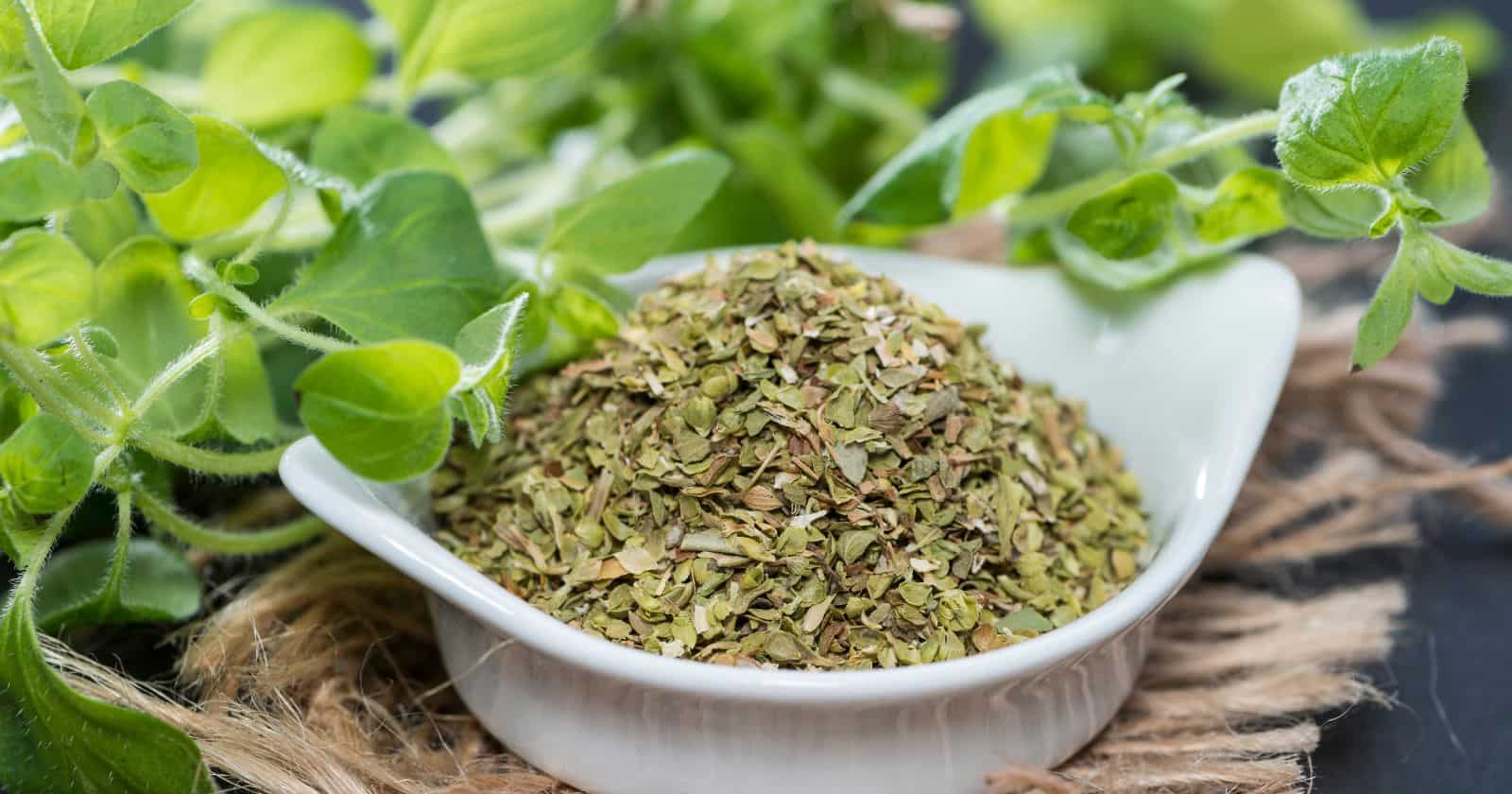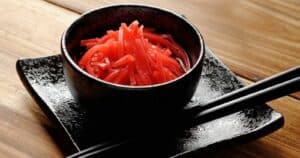With the increasing demand for natural remedies and healthier food choices, oregano is a powerful herb with unmatched benefits.
If you’re struggling to find ways to boost your immune system, improve digestion, or add flavor to your meals, oregano might just be the herb you’re missing.
In this article, we’ll dive into the medicinal properties of oregano, discuss its culinary uses, and explore how you can easily incorporate this herb into your daily routine.
Whether you’re an avid cook or just looking to enhance your health, keep reading to discover the fantastic benefits of oregano.
The Medicinal Properties of Oregano: Immune System Boosting
Oregano has some excellent medicinal properties, especially in supporting our immune system. When it comes to fighting off unwanted bacteria, oregano oil shines. Studies have shown that oregano oil has potent antibacterial properties, even against antibiotic-resistant strains!
Additionally, essential oregano oil contains carvacrol and thymol, which may help fight off harmful microbes. Thymol, found in oregano, is a natural antifungal that can help bolster our immune system and protect against toxins.
If you’re feeling run down and looking for a natural way to support your immune system, consider incorporating oregano into your diet or using oregano oil as a supplement.
One study published in the Journal of Medicinal Food found that oregano oil was effective in inhibiting the growth of harmful bacteria like Salmonella and E. coli. Another study found that oregano essential oils had solid antiviral properties against herpes simplex virus type 1.
In addition to its antibacterial and antiviral properties, oregano oil may help combat unwanted parasites in our bodies. This is due to the natural compounds in oregano oil that can help fight off microscopic invaders.
Aside from being a natural way to support your immune system, oregano also packs some serious flavor. Its pungent aroma and savory taste make it a great addition to many dishes.
Add fresh oregano to sauces, salads, or roasted vegetables for flavor. If you’re looking for something more potent, consider using oregano oil as a supplement.
However, it’s important to note that oregano oil should be used with caution and under the guidance of a healthcare professional, as it can be pretty potent and may interact with certain medications.
As always, it’s best to talk to your doctor before starting any new supplement regimen.
Oregano as a Natural Remedy: Digestive Support
Oregano is a natural remedy that can significantly improve your digestive health. This powerful herb has been used for centuries to treat digestive problems like bloating, stomach pain, and irritable bowel syndrome.
Scientists have found that oregano contains a high amount of carvacrol, known for its antibacterial properties. By killing off harmful bacteria in the gut, oregano can effectively relieve digestive discomfort and promote healthy digestion.
One easy way to take advantage of oregano’s health benefits is oregano oil. This potent extract is extracted from oregano leaves and can be added to water or taken in supplement form.
Oregano oil is valued for its antimicrobial, antiviral, and antifungal properties, making it an effective treatment for various digestive issues. Some studies have even suggested that oregano oil can help to treat ulcers and reduce inflammation in the gut.
Another way to enjoy the benefits of oregano is by drinking oregano tea. This delicious and refreshing tea has been used for centuries to relieve digestive discomfort and promote general wellness. Oregano tea contains natural compounds that can help to reduce inflammation and soothe digestive pain.
Drinking oregano tea regularly can also help to promote a healthy gut microbiome, which is essential for digestive health.
The Culinary Uses of Oregano: Flavorful and Versatile
Oregano is a flavorful and versatile herb commonly used in various culinary dishes. If you want to add depth to your tomato-based recipes like pizza or pasta sauce, oregano is perfect! It’s also an excellent choice for olive oil-based dishes like Italian vinaigrettes and lamb, chicken, or beef marinades.
In Mexican cuisine, cooks rely on the strong flavor of Mexican oregano for a wide variety of traditional dishes. But oregano doesn’t have to be limited to just tomato-based words. It adds flavor to meat mixtures for tacos, burritos, and fresh or cooked salsa.
Oregano can also make your roasted, baked, poached, or grilled chicken taste even better.
There are many ways to incorporate oregano into your cooking. Besides adding it directly to your dishes, it can also be used in marinades or stuffings or chopped up and added to bread or salads.
You can even sprinkle it on meat or chicken while cooking for added flavor.
In addition to its delicious taste, oregano also has several health benefits. It’s high in antioxidants and anti-inflammatory properties, which is excellent for immune support.
It’s also been studied for its potential antibacterial properties, which could have practical applications in food preparation.
Incorporating Oregano into Your Diet: Recipes and Meal Ideas
Incorporating oregano into your diet is easy and delicious. Whether you’re looking for plant- or meat-based meals, oregano can add a tasty twist to any recipe. Here are some ideas to get you started:
- Garlic and oregano pesto: blend fresh oregano, garlic, Parmesan cheese, pine nuts, and olive oil for a flavorful sauce that goes well with pasta, chicken, or grilled vegetables.
- One-pot lemon oregano chicken and rice: cook chicken thighs with rice, lemon, oregano, and chicken broth, then add peas and Parmesan cheese for a one-pot meal packed with flavor.
- Fresh oregano salad: mix chopped oregano leaves with lettuce, cherry tomatoes, cucumber, feta cheese, olives, and lemon vinaigrette for a fresh and zesty salad.
- Crispy oregano smashed potatoes: boil baby potatoes until soft, then break them and bake them in the oven with olive oil, garlic, salt, and oregano until crispy and golden brown.
- 5-minute oregano sauce: mix Greek yogurt, lemon juice, chopped oregano, salt, and pepper for a creamy and tangy sauce perfect for dipping or drizzling.
- Oregano vinaigrette: whisk together olive oil, red wine vinegar, Dijon mustard, oregano, garlic, and honey for a flavorful dressing that works with any salad.
- Fresh oregano pesto pasta: toss cooked pasta with fresh oregano pesto, cherry tomatoes, and mozzarella cheese for a quick, easy weeknight dinner.
- Chimichurri sauce: blend oregano, parsley, garlic, red pepper flakes, red wine vinegar, and olive oil for a zesty and herbal sauce that’s great with grilled meats.
- Cheesy tomato hand pies: make a simple dough with flour, salt, and water, then fill it with tomato sauce, mozzarella cheese, and chopped oregano for a portable and delicious snack.
- Grilled pork shoulder with butter vinegar sauce: marinate pork shoulder with olive oil, garlic, oregano, rosemary, lemon zest, salt, and pepper, then grill it and serve with a tangy butter vinegar sauce.
- Crispy potato hash with spicy sausage: mix diced potatoes with onions, bell peppers, garlic, oregano, salt, and paprika, then cook them in a skillet with spicy sausage for a hearty and flavorful breakfast.
Other Benefits of Oregano: Anti-inflammatory and Antioxidant
Oregano, nature’s wonder
Oregano contains antioxidants that help neutralize free radicals and reduce inflammation, making it a powerful ally for fighting injury and disease.
Let’s dive deeper into the other benefits of oregano: anti-inflammatory and antioxidant.
Firstly, oregano oil contains antioxidants that prevent cellular damage and aging caused by oxidative stress, which can lead to several diseases, including heart disease and cancer. Additionally, oregano oil has antibiotic and antifungal properties that help combat infections and balance the body’s systems.
The oil and constituents of oregano oil, like thymol and rosmarinic acid, have anti-inflammatory properties that help reduce inflammation in the body.
Moreover, oregano is also known for aiding digestion. It stimulates the production of digestive juices, enzymes, and bile, which help break down food in the stomach and promote nutrient absorption.
Oregano oil can even treat digestive disorders like bloating, gas, and diarrhea, as it has antispasmodic properties that help soothe muscles and reduce spasms.
How to Choose and Store Oregano: Tips for Maximum Freshness and Flavor
Oregano is a delicious herb that adds a unique flavor to various dishes. But to truly enjoy the complete freshness and taste, knowing how to choose and store it correctly is essential. Fortunately, preserving oregano for maximum enjoyment doesn’t take much effort!
Firstly, it’s essential to check for freshness when purchasing oregano. Look for bright green leaves and avoid brown, wilted, or slimy pieces. When storing fresh oregano, it’s best to use it as soon as possible. Store it in the refrigerator in a plastic bag with a slightly damp paper towel to extend its lifespan.
This can help keep it fresh for up to 3 days or possibly up to a week if sealed correctly.
When drying oregano, it’s important to harvest it correctly to preserve flavor. Always cut longer stems above a leaf node and avoid harvesting early in the morning when the dew is still on the leaves. Once the leaves are harvested, store them in a dark, dry location.
You can use a cool, dry place or a dehydrator to remove excess moisture. Dried oregano can last for up to 6 months when stored correctly!
Finally, remember that oregano can add flavor to virtually any dish. Add it to soups, stews, pasta dishes, and even roasted potatoes. You can also sprinkle it on salad, pizza, or roasted vegetables. With its delicious taste and versatility, oregano is a must-have in any kitchen!
Oregano Substitute
Are you looking for a substitution for oregano in your recipe? No problem! There are several options to choose from. Basil, thyme, and Italian seasoning can be used in a 1:1 ratio as a substitute for oregano.
Among other common substitutions are Marjoram, Mexican oregano, parsley, tarragon, and bay leaves. Knowing the flavor profile of your dish can help you choose the best substitute for your recipe.
If you want to achieve a similar taste to oregano, choose a herb that complements the other ingredients.
- Basil – this herb is an excellent substitute for oregano in Italian cuisine. It has a sweet and slightly minty taste that can add depth to your dish.
- Thyme – thyme is an excellent option to add a savory flavor to your recipe. It pairs well with poultry, seafood, and vegetables.
- Marjoram – if you want an oregano taste, marjoram is a perfect substitute. It’s also great for soups, stews, and tomato-based dishes.
- Bay leaves add a subtle flavor to a dish but be careful not to overdo it as they are potent.
- Tarragon – if you want to add a licorice taste to your dish, tarragon is a great choice. It pairs well with chicken and fish and is often used in French cuisine.
- Parsley has a mild, fresh taste that can complement any dish. It’s often used as a garnish but can also be used in marinades, sauces, and dressing.
- Mexican oregano – this herb tastes similar to oregano but a bit stronger. It works well in Mexican cuisine and can be used in salsas, chili, and soups.





